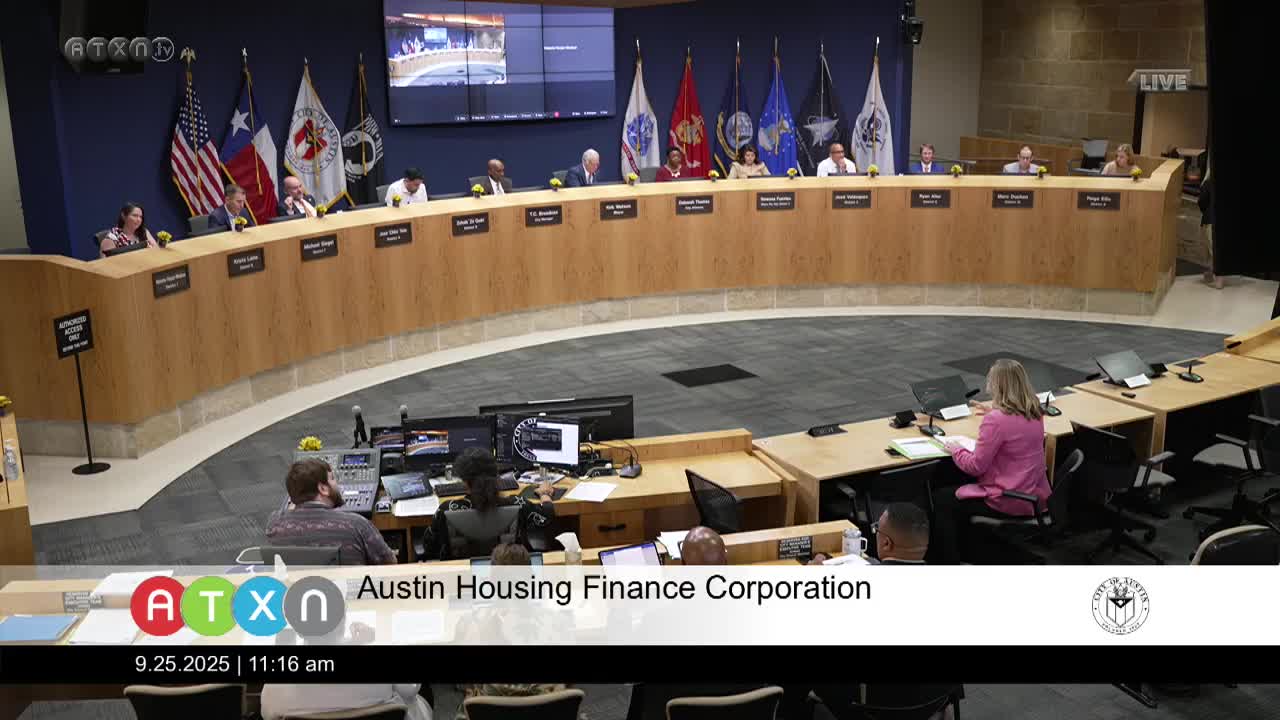Article not found
This article is no longer available. But don't worry—we've gathered other articles that discuss the same topic.
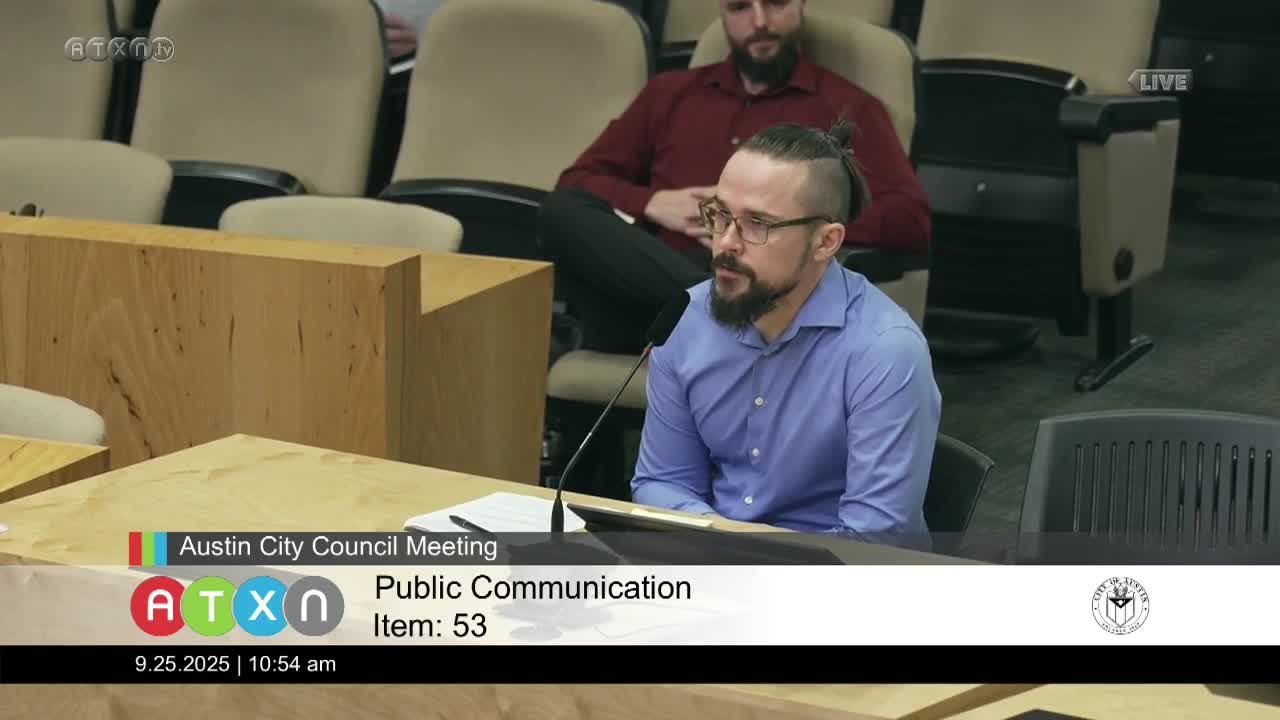
Council raises wage requirement for creative content incentive; expands support for local film and game workforce
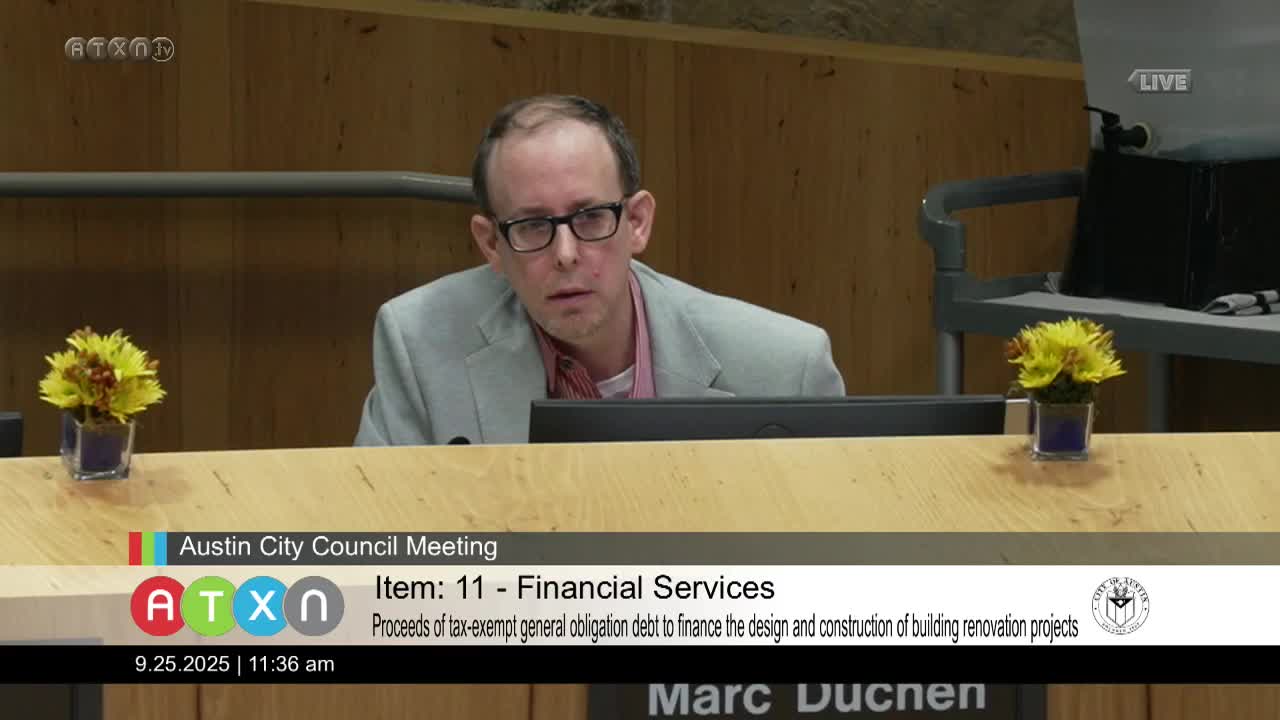
Council shifts vehicle-abatement authority to allow civilian staff involvement
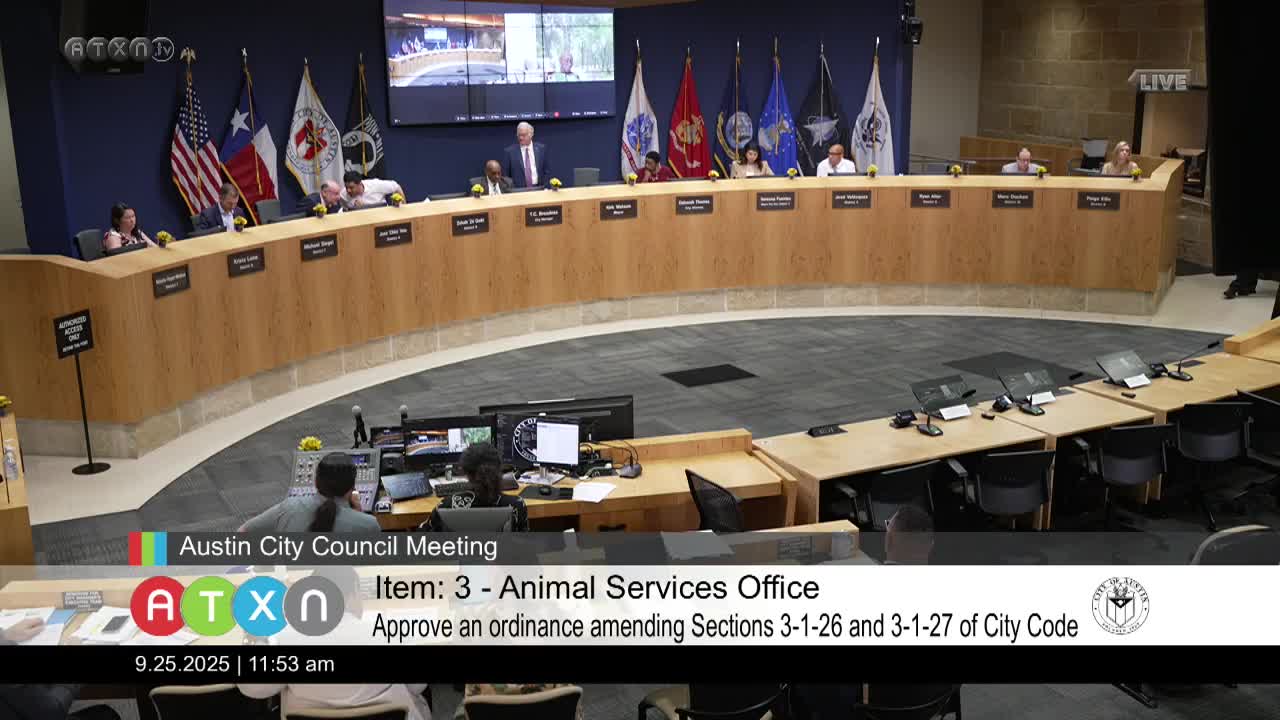
Austin council restores medical authority to shelter veterinarians, requires rescue notice for lactating animals
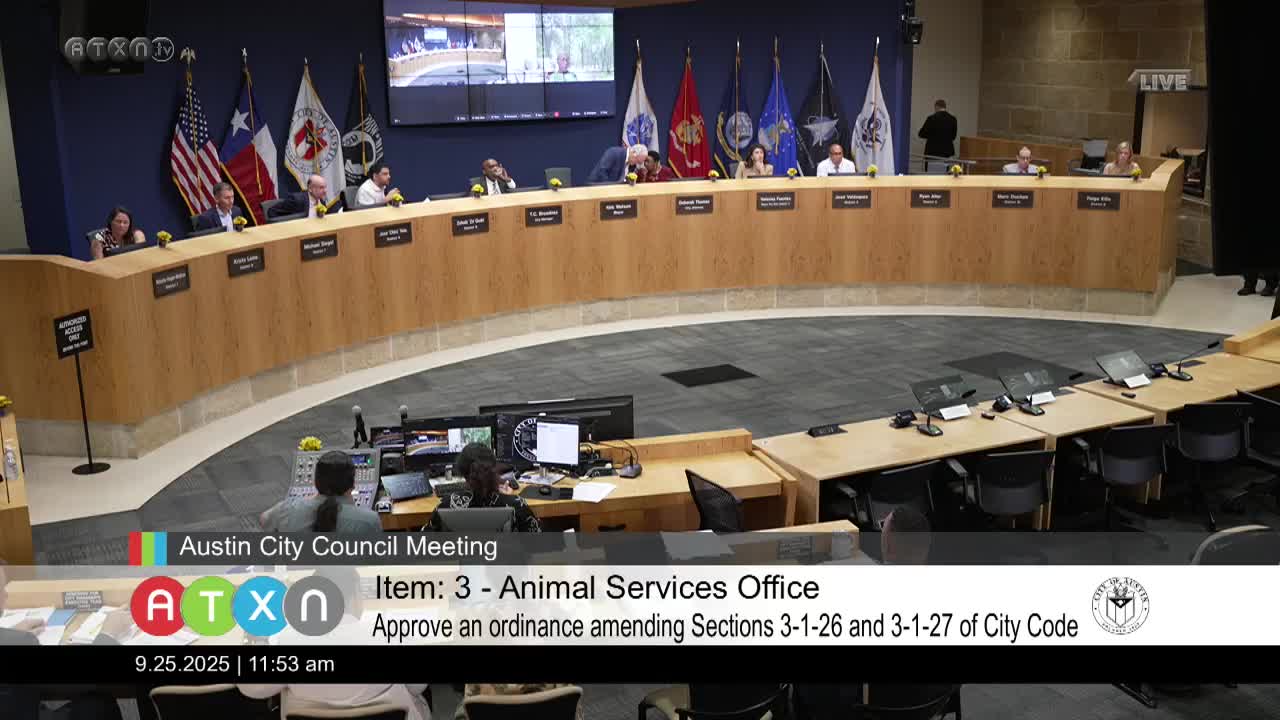
Council approves Convention Center site plan after neighbors raise transparency and waiver concerns
